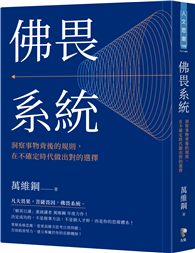2 支出
Dialogue 對話
At the moment, Steven and his wife Julia are talking about the family’s expenses.
Julia: Steven, how much would it cost to move?
Steven: About 3,000 dollars.
Julia: That’s a lot of money. Hospital bills have already made deep inroads into our savings. Do you think the rest of your salary will be enough to cover our daily expenses?
Steven: I am afraid not, Darling. Our expenses are mounting.
Julia: We have to cut back on our shopping from now on.
Steven: Don’t worry. Maybe I can find a part-time job to increase my income.
Julia: I hope so.
此刻,史蒂文和他妻子茱莉亞正在討論家庭開支。
茱莉亞:史蒂文,搬家的開銷是多少?
史蒂文:大約 3000 美元吧。
茱莉亞:很多錢啊。住院的開銷已用去我們一大筆積蓄。
你覺得你剩下的錢足夠支付我們的日常開銷嗎?
史蒂文:恐怕不夠,親愛的。我們的開銷正在增加之中。
茱莉亞:從現在開始我們得縮減購物開支了。
史蒂文:不要擔心,或許我可以找個兼職來增加收入。
茱莉亞:希望如此。
Vocabulary and Phrases 單字和片語
mount [maʊnt] v. 登上,爬上,上升
cut back on... 減低……
Key Sentences 核心句型
家庭消費狀況
1 I plunked down $ 350 for a silver necklace.
我花費了 350 元買了條銀項鍊。
2 It will cost me 500 dollars to repair the car.
修理這部汽車要花費我 500 美元。
3 A great deal of his money goes for rent. 他的錢大部分用於租房子。
4 Our expenses averaged out to 35 dollars per day.
我們的支出平均每天 35 美元。
5 The cost of my lunch averaged two dollars a day.
我的午餐平均每天花費兩美元。
6 My father has had to defray the cost of my education.
我父親得支付我的教育費用。
7 Hospital bills had made deep inroads into our savings.
住院的費用已花去我們一大筆積蓄。
8 She spent one-third of her income on clothing and cosmetics.
她把自己三分之一的收入用於服裝和化妝品。
9 My expenditure this month amounts to $800.
這個月我花了 800 美元。
10 I spent $50 on the bike. 我花了 50 美元買下那輛自行車。
11 Income and expenditure exactly balance. 收入和支出正好相抵。
12 All this spending is a drain on the money I have saved.
這些開銷正在耗光我的積蓄。
13 An annual holiday is a big expense. 一年一度的假期是一筆大開銷。
14 Our monthly household expenditure is four hundred dollars altogether.
我們一家的開銷每月共計四百美元。
15 My wife keeps a record of our daily expenses.
我太太將日常開銷都記錄下來。
16 I’d rather economize on clothes and food than travel.
我寧願節衣縮食,也不願節省旅遊費用。
17 Older people shouldn’t skimp on food or heating.
老年人不應過分吝惜食物或取暖方面的開銷。
節省開支
1 We have to cut back on our shopping from now on.
從現在開始我們就得縮減購物開支了。
2 Mother always buys many things during bargain sales to save money. 為了省錢,母親總是在商品特賣時購買許多東西。
3 Jack economized by taking buses instead of taxis.
傑克不坐計程車而改乘公車以省錢。
4 We save money wherever we possibly can.
我們會盡可能地節省開支。
5 I had to scrimp and save to pay for my holiday.
我必須節省開支,以支付度假的費用。
6 With our income sharply reduced, it is common sense to rein in our expenditures.
由於我們收入明顯減少,所以緊縮開支是很明智的。
7 Unless a tight hold is kept on the purse strings, a man can soon find that his family is spending more than he is earning.
要嚴格控制開支,否則,一個人很快就會感到他家中入不敷出。
8 We have to control our expenses. 我們得控制消費。
9 We must regulate our spending. 我們必須控制我們的開銷。
10 I’m getting short of money. I have to draw in my expenditure.
我缺錢,得節省開支。
11 A penny saved is a penny earned. 省錢就是賺錢。
12 Providence is better than rent. 寧可節省,不可借貸。
13 Jack is saving for a house. 傑克正在存錢準備買房。
14 He is trying to save money by walking to work.
為了省錢,他走路去上班。
15 To save money, we traveled second class.
為了省錢,我們乘坐二等艙旅行。
16 She saves money in every way she can.
她在各方面盡可能地省錢。
17 We are going to take the bus to save money.
為了省錢,我們打算乘坐公車去。
18 He shopped at bargain-basement shops to save money.
他在地下廉價商店購物來省錢。
19 He is saving to buy a computer. 為了買電腦,他在節省開支。
談論開銷
1 I’ve spent all my earnings. 我把賺的錢都花光了。
2 My husband’s weekly lunch bills exceed my monthly income.
我丈夫每週午餐的花費超過了我的月收入。
3 My mother never withdraws her savings to buy unnecessary things.
母親從不領出積蓄去買多餘物品。
4 Do you think the rest of your salary will be enough to cover our daily expenses? 你覺得你剩下的薪水足夠支付我們的日常開支嗎?
5 How much money do you spend each week? 你每星期花多少錢?
6 Running a car is a great expense. 開一輛汽車花費很大。
7 House repairs, holidays and other expenses reduced my bank balance to almost nothing.
修房、度假和其他開銷使我在銀行的存款所剩無幾。
8 My expenditures are restricted by my income.
我的支出受收入的限制。
9 How much would it cost to move? 搬家的開銷是多少?
10 I’m considering buying a second-hand refrigerator because I’m short of money now.
因為現在錢不夠,我正考慮買台舊冰箱。
11 Our expenses are mounting. 我們的花費正在增加。
12 It’s very shortsighted not to spend money on repairing our house.
你不肯花錢修理我們的房子,眼光是非常短淺的。
13 After defraying all the expenses, they were able to lay aside NT$10,000 each month.
在支付所有的開支以後,他們每月能存下一萬元。
14 Have you figured out the expenses? 你把開銷都算出來了嗎?
15 He is always spending. 他揮霍成性。
16 He contracted huge debts by rash spending.
他由於亂花錢而背上沉重的債務。
17 She spends too much on clothes.
她在衣著上花費太大。
18 If you want to waste your money, that’s your business.
你要亂花錢,那是你自己的事。
19 My brother flings his money about on luxuries.
弟弟亂花錢買一些昂貴的奢侈品。
20 I argued with my wife over household expenses.
我跟太太爭論有關家庭費用的問題。
21 It’s too much of an expense for me to own a car.
對我來說,擁有一輛汽車的花費太大。
22 You have wasted your money on things you don’t need.
你花了冤枉錢,買的是你自己並不需要的東西。
23 John gives his children the best education that money can buy.
約翰不惜花費金錢,讓孩子得到最好的教育。
3 保險
Dialogue 對話
Steven’s father Ben has advised Steven to buy a life insurance.
Now they are talking about it.
Ben: Hey, son, are you insured?
Steven: Not yet, but I’m thinking of it. Have you bought insurance, Dad?
Ben: I took out a life insurance policy and made your mother the beneficiary.
Steven: Can you tell me why you wanted to buy it?
Ben: I am a fireman, and it is a dangerous job. I have to consider your mother.
Steven: Oh, I see. Do you advise me to buy an insurance policy?
Ben: You have children now. What if something, God forbid, happens to you?
Steven: That’s true. Well, how much do you think I should get?
Ben: A $100,000 policy shouldn’t be too expensive. Here, call my agent. He’ll give you a good deal.
史蒂文的父親本建議史蒂文買一份人壽保險。
此刻他們正在談論此事。
班:嗨,兒子,你買保險了嗎?
史蒂文:還沒有,不過我正考慮呢。爸爸,你買了嗎?
班:我買了份壽險,受益人是你母親。
史蒂文:你能告訴我你為什麼要買嗎?
班:我是消防員,工作很危險。我必須考慮到你母親的生活保障。
史蒂文:哦,我明白了。你建議我買嗎?
班:你現在也有小孩了。萬一有什麼不測,當然但願不會如此,那該怎麼辦?
史蒂文:那倒是。哦,你覺得我應該花多少錢買這個?
班:10 萬元保單不算貴。給你這個,打個電話給我的保險經紀人,
他會給你一個合理的價錢。
Vocabulary and Phrases 單字和片語
insure [ɪnˋʃʊr] v. 給……保險
beneficiary [͵bɛnəˋfɪʃərɪ] n. 受惠者,受益人
fireman [ˋfaɪrmən] n. 消防隊員
dangerous [ˋdendʒərəs] adj. 危險的,不安全的
forbid [fɚˋbɪd] v. 禁止,阻止,不許
agent [ˋedʒənt] n. 代理人,代理商
Key Sentences 核心句型
人壽保險
1 He has life insurance. 他投保了人壽保險。
2 She has taken out a life insurance policy. 她辦理了人壽保險。
3 What is the sum you are insured for? 你的人壽保險額是多少?
4 Have you insured yourself? 你投保人壽保險了嗎?
(也可以這樣說:Do you have life insurance? )
5 Would you be interested in buying life insurance?
你有興趣買一份人壽保險嗎?
6 I am thinking of taking out a life insurance policy.
我正在考慮買一份人壽保險。
7 It is advisable to insure your life against accident.
建議最好買人壽保險,以防意外發生。
8 Do you mean life insurance to protect against accidents?
你的意思是人壽險是預防事故的嗎?
9 A life-insurance policy may serve as security for a loan.
人壽保險可作貸款的抵押。
10 I insured my life for£5,000. 我投保了 5000 英鎊的人壽保險。
11 I decided to buy a life insurance policy of one hundred thousand dollars. 我決定買十萬美元的人壽保險。
12 I started paying premiums on my life insurance last year.
我去年開始支付人壽保險費。
13 I took out a life insurance policy and made my wife the beneficiary.
我參加了一份人壽保險,妻子是受益人。
14 I have life insurance, and my home and its contents are also insured. 我買了人壽保險,我的家和裡面的東西也都入了保。
養老保險
1 What is social endowment insurance? 什麼是社會養老保險?
2 Who provides the money for endowment insurance funds?
養老保險基金有哪些來源?
3 My son bought endowment insurance for me.
我兒子給我買了養老保險。
4 Who should be concerned about rural society endowment insurance? 哪些人應參加鄉村社會養老保險?
5 You can inquire online about endowment insurance codes.
你可以上網查詢相關的養老保險法規。
6 Pension schemes are important in a social welfare system.
養老保險制度是一項重要的社會福利制度。
7 You will get basic retirement benefits from our company.
退休後,你就能得到基本養老保險金。
8 The government encourages people to save money for their old age. 國家鼓勵人民開展儲蓄性養老保險。
9 There is a consensus among citizens of the need for the establishment of an endowment insurance system for farmers.
建立農民養老保險制度已經成為社會的共識。
失業保險
1 Do you know how to get unemployment insurance?
你知道如何得到失業保險嗎?
2 Are you eligible for unemployment insurance?
你有資格享受失業保險嗎?
3 You can enjoy unemployed insurance. 你可以享受失業保險的待遇。
4 Your unemployment insurance will start from the third week of your unemployment. 從你失業的第三週起,你的失業保險就開始生效。
5 According to the rules, unemployed people cannot enjoy unemployment insurance benefits if they do not actively pursue employment.
依據規定,失業人員在主動辭職的情況下,不能享受失業保險待遇。
6 Given its limited coverage, the insurance program is incomplete.
失業保險目前因涵蓋面有限而並不完備。
7 At the end of 2000, a total of 100 million employees were covered by unemployment insurance.
截至 2000 年底,總共有一億人享有失業保險。
8 More and more people are living on unemployment insurance.
越來越多的人靠失業保險金過日子。
9 Unemployment insurance also extends the time a person stays out of work. 失業保險延長了失業者的待業時間。
10 We need to improve the unemployment insurance system.
我們需要完善失業保險制度。
11 Unemployment insurance can cover the basic living expenses of the unemployed. 失業保險可以保障失業人員的基本生活。
醫療保險
1 How do I pick a good medical plan? 我該怎樣選擇好的醫療保險?
2 What kind of medical insurance are you covered by?
你享有哪種醫療保險?
3 Do you have health insurance? 你有參加醫療保險嗎?
4 What do our medical benefits cover? 我們的醫療保險包括哪些?
5 Nearly 30% of people are now without health insurance.
近 30%的人現在沒有醫療保險。
6 How much is the co-pay for this medical insurance?
這種醫療保險的自付率是多少啊?
7 Do you agree with the concept of mandatory health insurance?
你是否同意強制醫療保險?
8 Most health insurance plans do not pay for long-term care.
大部分醫療保險不會支付長期療養費用。
9 The government offers its employees excellent health insurance benefits. 政府給員工提供很好的健康醫療保險。
10 Some people receive medical coverage from large employers.
一些人能從大的雇主那裡得到醫療保險。
11 When employees lose their jobs, most of them lose their health insurance, too.
一旦員工們丟了工作,多數也同時丟掉了其醫療保險。
12 Do you have insurance, or will you be taking care of this yourself?
你有醫療保險,還是藥費自理呢?
13 Most foreigners have insurance to pay for treatment.
大部分外國人都用醫療保險來支付治療費用。
14 Have you ever thought of getting medical insurance?
你是否想過購買醫療保險?
| FindBook |
有 7 項符合
英語10000 句 行走全世界的圖書 |
| 圖書選購 |
| 型式 | 價格 | 供應商 | 所屬目錄 | 二手書 |
$ 154 |
二手中文書 |
$ 379 |
旅行英語 |
$ 379 |
Language Learning |
$ 408 |
語言 |
$ 432 |
英文 |
$ 432 |
英文 |
$ 432 |
英文 |
|---|
| 圖書館借閱 |
| 國家圖書館 | 全國圖書書目資訊網 | 國立公共資訊圖書館 | 電子書服務平台 | MetaCat 跨館整合查詢 |
| 臺北市立圖書館 | 新北市立圖書館 | 基隆市公共圖書館 | 桃園市立圖書館 | 新竹縣公共圖書館 |
| 苗栗縣立圖書館 | 臺中市立圖書館 | 彰化縣公共圖書館 | 南投縣文化局 | 雲林縣公共圖書館 |
| 嘉義縣圖書館 | 臺南市立圖書館 | 高雄市立圖書館 | 屏東縣公共圖書館 | 宜蘭縣公共圖書館 |
| 花蓮縣文化局 | 臺東縣文化處 |
|
|
圖書介紹 - 資料來源:TAAZE 讀冊生活 評分:
圖書名稱:英語10000 句 行走全世界
10000句最典型的生活會話
★ 例句最豐富 + ★用法最道地 + ★收錄最完整
旅遊、交通、購物,出國必備懶人包
出國前做功課,詢問旅館住宿訂退房;在國外搭車租車,
找尋設施shopping購物;急需說出口的那句話都在這。
職場、商務、國外出差,英語報告一把罩
迅速提升英語能力,職場競爭力UP!商務信件往來、外國客戶接待輕鬆搞定。
英語溝通、報告無障礙,跨過出國進修,升等升職的英文門檻。
居家、社交、休閒娛樂,暢快聊不停
與老外或老師交談,總是緊張到說不出話?學了好多年的
英語,卻連最基本的聊天會話都聽不懂?每天要說的話,本書全都收錄
網羅140個生活主題
最常遇到的日常生活情境全數收納
每個主題除情境對話之外,再增加不同狀況可能發生的對話內容,
是一本主題收納最為完整的會話寶典。
最實用10000句會話
相同主題不同細節的換句話說盡皆網羅
核心句型介紹語意相近但說法與內容稍有不同的替代句,
讓讀者能夠最準確且最道地的學會想說的話。
作者簡介:
審訂者簡介
Brian Foden
Brian為專業ESL教師、作家、配音員,在台灣任教十餘年。曾為多家出版社撰寫各類英語學習相關書籍,包括商用英文、新聞英文、托福、新多益等。
Brian生於加拿大溫哥華,在加拿大期間曾為報社記者,也曾擔任加國廣播電台擔任播報員。2000到2004年定居台灣後,於ICRT(台北國際社區廣播電台)擔任新聞編寫與播報一職。
目前居住於台北,專職撰寫英語學習書籍、配音、英語教學的工作。他娶了一位台灣老婆Vivian,平常喜歡騎車、慢跑。有個五歲多的女兒,正在育兒的道路上努力學習。
TOP
章節試閱
2 支出
Dialogue 對話
At the moment, Steven and his wife Julia are talking about the family’s expenses.
Julia: Steven, how much would it cost to move?
Steven: About 3,000 dollars.
Julia: That’s a lot of money. Hospital bills have already made deep inroads into our savings. Do you think the rest of your salary will be enough to cover our daily expenses?
Steven: I am afraid not, Darling. Our expenses are mounting.
Julia: We have to cut back on our shopping from now on.
Steven: Don’t wor...
Dialogue 對話
At the moment, Steven and his wife Julia are talking about the family’s expenses.
Julia: Steven, how much would it cost to move?
Steven: About 3,000 dollars.
Julia: That’s a lot of money. Hospital bills have already made deep inroads into our savings. Do you think the rest of your salary will be enough to cover our daily expenses?
Steven: I am afraid not, Darling. Our expenses are mounting.
Julia: We have to cut back on our shopping from now on.
Steven: Don’t wor...
»看全部
TOP
推薦序
任何一位語言專家都會跟你說:增進你語文能力的關鍵之一便是練習、練習、再練習。當你已經如此做,就是再練習多一些,也是百益而無害。當你捧讀這本書時,你將會在英語閱讀和對話上,獲得非常多的練習和助益。同時,這些語言專家也會告訴你:並不是所有的語文教材都是品質一致,有些教材內容規劃的很好,可以讓外語學習者有效率的學習吸收。可惜的是,坊間真的太多不良設計教材,會讓學習者研讀後,反而增加學習困難度,而深覺沮喪,甚至想要放棄。幸運的是,這是一本優質企劃的語言學習書,能激發學習者的興趣,並且大大增強語言能力。
...
...
»看全部
TOP
目錄
第一單元 (Unit 1) 居家
第二單元 (Unit 2) 投資理財
第三單元 (Unit 3) 教育
第四單元 (Unit 4) 交通
第五單元 (Unit 5) 旅遊
第六單元 (Unit 6) 購物
第七單元 (Unit 7) 社交
第八單元 (Unit 8) 戀愛
第九單元 (Unit 9) 情感表達
第十單元 (Unit 10) 休閒娛樂
第十一單元 (Unit 11) 健身運動
第十二單元 (Unit 12) 職場
第十三單元 (Unit 13) 商務
第十四單元 (Unit 14) 醫院
第十五單元 (Unit 15) 郵局
第二單元 (Unit 2) 投資理財
第三單元 (Unit 3) 教育
第四單元 (Unit 4) 交通
第五單元 (Unit 5) 旅遊
第六單元 (Unit 6) 購物
第七單元 (Unit 7) 社交
第八單元 (Unit 8) 戀愛
第九單元 (Unit 9) 情感表達
第十單元 (Unit 10) 休閒娛樂
第十一單元 (Unit 11) 健身運動
第十二單元 (Unit 12) 職場
第十三單元 (Unit 13) 商務
第十四單元 (Unit 14) 醫院
第十五單元 (Unit 15) 郵局
»看全部
TOP
商品資料
- 作者: 源樺出版編輯部
- 出版社: 華翔文化 出版日期:2018-11-05 ISBN/ISSN:9789865962746
- 語言:繁體中文 裝訂方式:平裝 頁數:656頁
- 商品尺寸:長:233mm \ 寬:172mm
- 類別: 中文書> 語言> 英文
|











